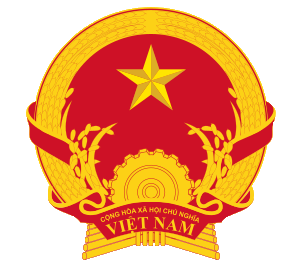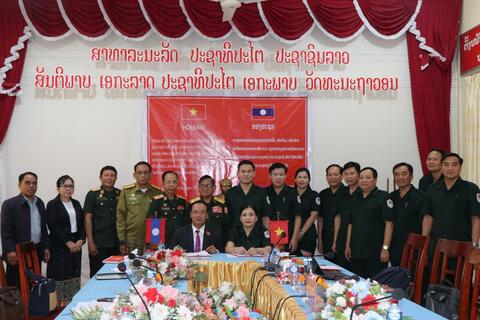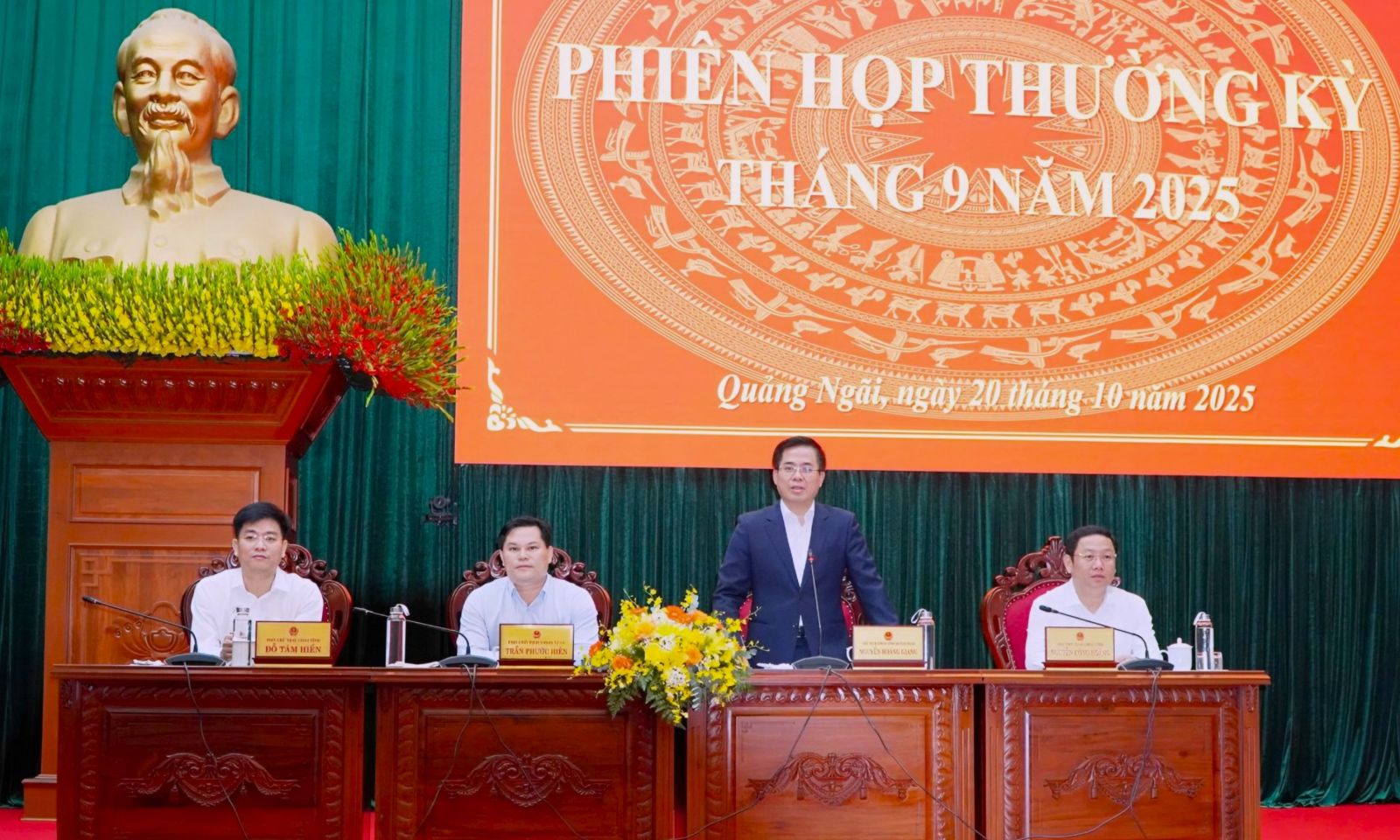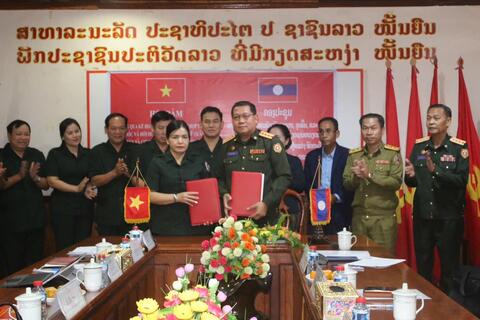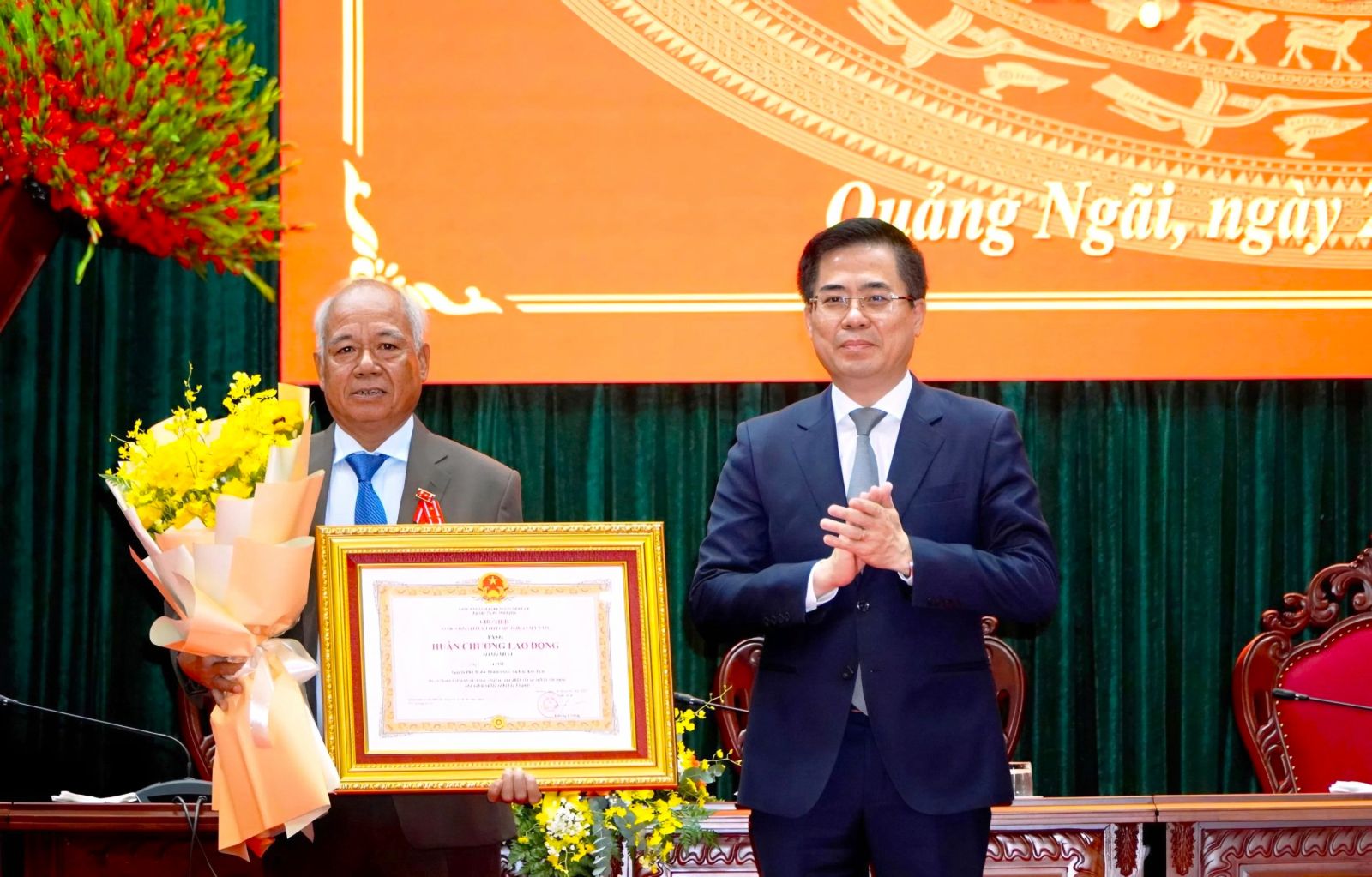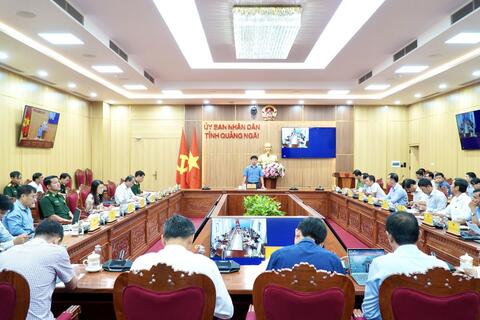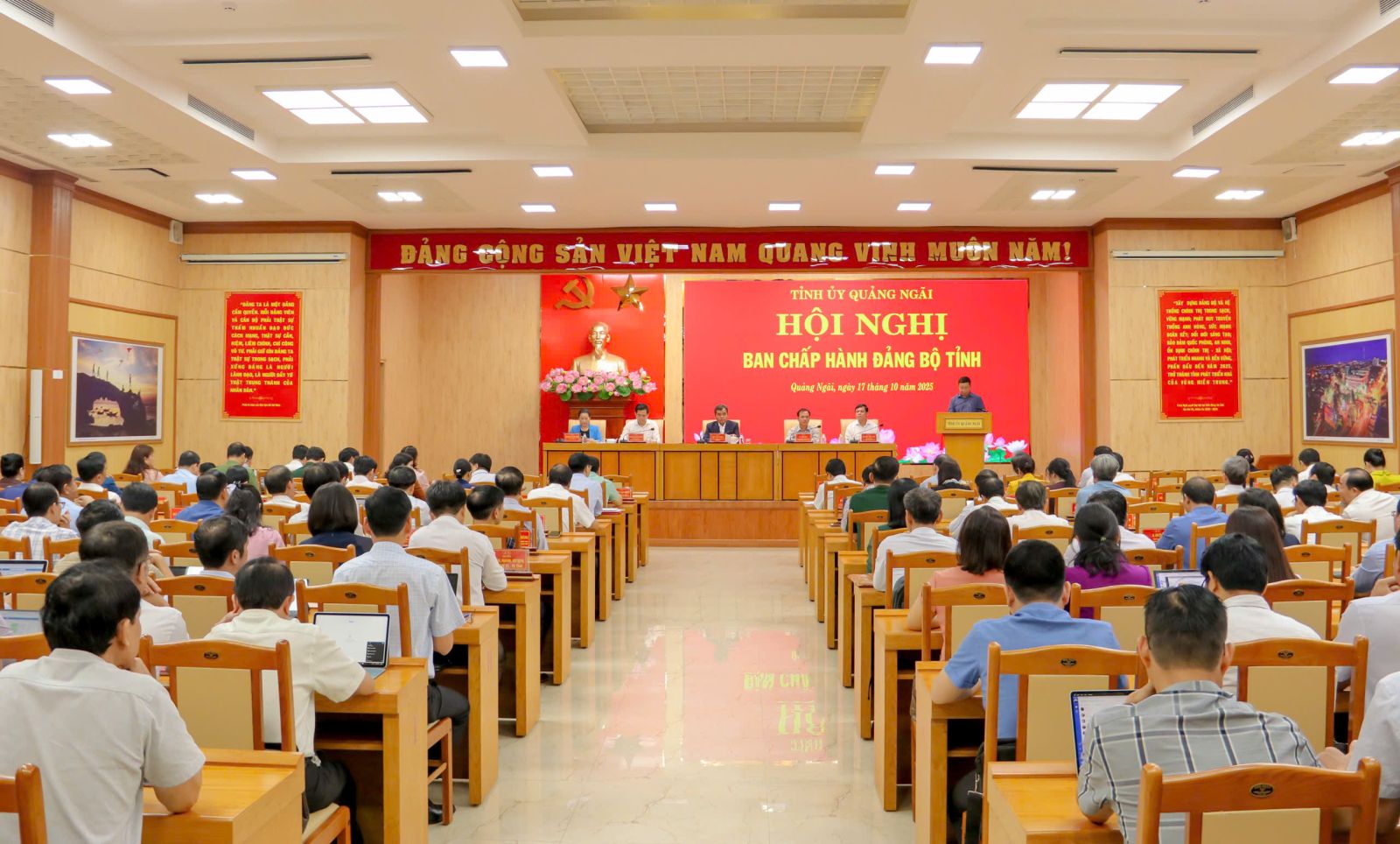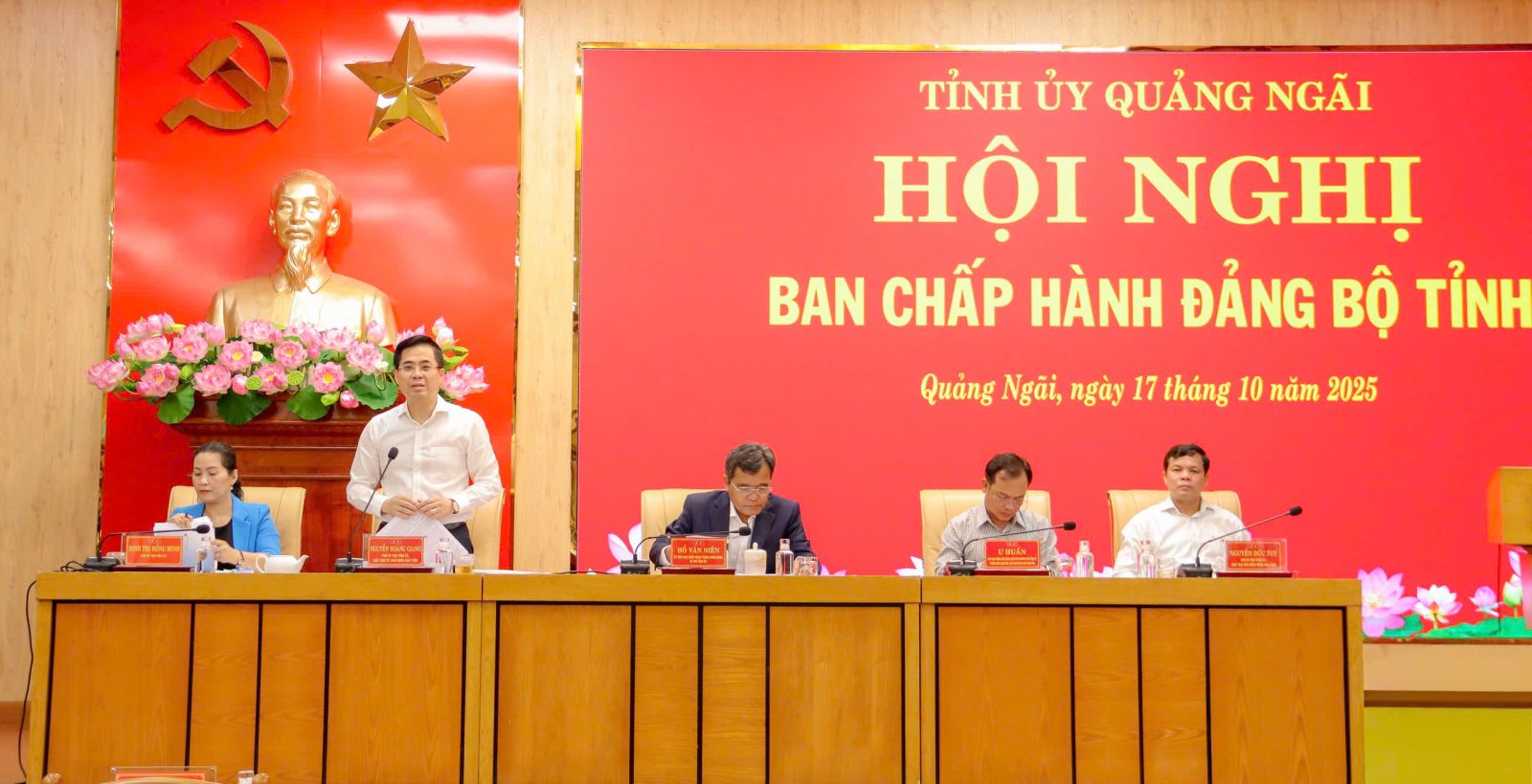Speaking at the session, Chairman Nguyễn Hoàng Giang emphasized that 2025 is a pivotal year - marking the final stage of the 2021–2025 five-year socio-economic development plan - and laying the groundwork for the 2026–2031 period.
He highlighted that this year, the province is also preparing for major political and administrative events, including the 1st Congress of the Quảng Ngãi Provincial Party Committee (2025–2030 term) and the implementation of the administrative unit consolidation policy, as directed by the National Assembly Standing Committee.
Chairman Giang urged local authorities and residents to fully leverage their strengths to boost commodity-based agricultural production, promote new-style rural development, and improve livelihoods.
.jpg)
Reportedly, after more than three months of implementing the two-tier local government model, the communes have maintained stable and effective operations, with stronger governance, improved coordination, and positive public response.
Administrative procedures have been handled promptly, meeting the needs of both citizens and businesses.
During the first nine months of 2025, the communes recorded positive socio-economic results, with several indicators meeting or surpassing planned targets.
Local economies have focused on developing commercial agriculture, introducing technical innovations in crop and livestock production, and expanding industrial crops and traditional handicrafts. These efforts have created jobs and raised incomes.
Budget revenues saw positive growth, while public investment disbursement also progressed steadily. Notably, Đăk Hà reached 71 per cent of its annual plan and Ngọk Réo 100 per cent as of September 30.
The communes have also made strides in education, healthcare, social welfare, digital transformation, and national defense.
However, local leaders raised challenges including shortages in infrastructure, IT facilities, and equipment, as well as difficulties in land-use planning and management under the new administrative model.
They called for additional provincial investment in transport infrastructure, funding for commune-level master plans, and policies to promote high-quality coffee production and processing.
They also proposed technical training and agricultural extension programs to help farmers maximize land and labor potential.
Representatives from provincial departments and agencies discussed relevant issues related to infrastructure investment, planning, capital allocation, administrative reform, and organizational restructuring.
They pledged close coordination with local authorities to address obstacles and ensure the effective operation of the two-tier government system.
In his closing remarks, Chairman Giang praised the efforts of local leaders, officials, and civil servants for their dedication and positive achievements despite ongoing challenges.
He urged communes to act swiftly to address existing difficulties and intensify efforts to fulfill socio-economic targets for 2025, thereby contributing to the province’s goal of achieving a 10 per cent GRDP growth rate this year and maintaining an average annual growth of 10 per cent or more for 2026–2030.
Chairman Giang also called for continued efforts to exceed state budget revenue targets, promote key agricultural products, and develop OCOP- branded goods with competitive advantages.
He directed localities to accelerate public investment projects, especially transitional ones under national target programs, with the goal of achieving 100 per cent disbursement by January 31, 2026.
He further emphasized the need to finalize the 2026–2030 medium-term public investment plan, ensure early preparation of 2026 projects, and strengthen the management and use of public assets.
The Chairman instructed communes to work closely with provincial departments to enhance civil servant training, operate commune-level administrative service centers efficiently, and apply digital transformation to improve administrative procedures for citizens and businesses.
Regarding land management, he demanded strict discipline, with land-use plans to be reviewed and adjusted in line with provincial planning.
He urged communes to implement the 90-day campaign to build and complete the national land database, ensuring consistency and efficiency under the two-tier administrative model.
Chairman Giang also called for greater efforts to promote cultural, social, and tourism development, especially community-based and experiential tourism tied to local specialties and advantages, to ensure effective social welfare policies, and to maintain national defense, security, and social order.
He requested provincial departments and agencies to address local recommendations promptly, provide technical guidance, and create favorable conditions for communes to effectively implement development tasks, contributing to the province’s overall socio-economic goals for 2025 and beyond.
M.H
